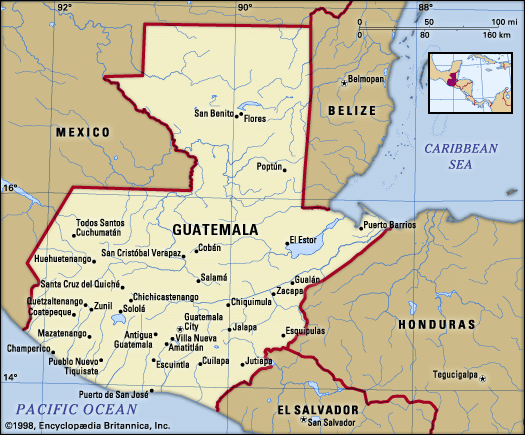
Guatemala’s main businesses
Guatemala, a country with a rich cultural heritage and a diverse economy, relies on various industries that fuel its economy, create employment, and drive growth. Here are the primary businesses and economic sectors that contribute significantly to Guatemala’s economy:
1. Agriculture
Agriculture has historically been the backbone of Guatemala’s economy, with coffee, bananas, sugar, and cardamom being among its top exports. The country is the world’s largest producer of cardamom, a spice that has high demand in Middle Eastern and Asian markets. Guatemala also exports a significant amount of coffee, especially high-quality Arabica beans, which are sought after worldwide. Additionally, Guatemala’s fertile land supports a variety of fruits and vegetables, such as avocados, pineapples, and tomatoes, which are exported primarily to North America. The agricultural sector employs a substantial part of the workforce, though it faces challenges due to climate vulnerability and fluctuating global market prices.
2. Textile and Apparel Industry
The textile and apparel industry is one of Guatemala’s largest industrial sectors and a significant contributor to its exports. The country has a strong maquila (manufacturing for export) sector, producing garments for brands based in the United States and Europe. The industry benefits from Guatemala’s trade agreements, including the Central American-Dominican Republic Free Trade Agreement (CAFTA-DR) with the United States, which provides preferential access to the U.S. market. This sector employs many Guatemalans, particularly women, and has been crucial in expanding job opportunities beyond agriculture. However, competition from Asia has made it increasingly important for the sector to focus on quality and faster delivery times.
3. Mining and Natural Resources
Mining is another key industry, with Guatemala rich in resources such as gold, silver, nickel, and rare earth metals. While controversial due to environmental concerns, mining is a significant economic contributor, with several foreign-owned mining companies operating in Guatemala. Nickel is one of the most valuable exports, used in stainless steel and battery production. The industry has led to debates regarding environmental impacts and the rights of indigenous communities, and there is an ongoing need for regulation and community engagement to ensure sustainable practices.
4. Tourism
Tourism in Guatemala has been growing steadily, with attractions like ancient Mayan ruins, colonial architecture, vibrant indigenous culture, and natural landscapes, including lakes, volcanoes, and rainforests. Key tourist destinations include Antigua Guatemala, Lake Atitlán, and Tikal National Park, one of the largest Mayan archaeological sites. The sector generates revenue and employment, especially in rural areas. Adventure tourism, eco-tourism, and cultural tourism are expanding, with visitors mainly from North America and Europe. Although the COVID-19 pandemic impacted tourism, the industry is rebounding with renewed government efforts to promote Guatemala as a travel destination.
5. Manufacturing
Guatemala’s manufacturing sector produces a wide array of goods, including processed food, beverages, chemicals, plastics, pharmaceuticals, and consumer goods. Food and beverage processing is particularly significant, with companies producing items such as instant coffee, canned goods, and fruit juices. This industry is supported by both local and international demand, with a growing emphasis on quality and export-ready packaging. The pharmaceutical industry is another growing sector, meeting both domestic needs and export demands, particularly in Central America and the Caribbean.
6. Energy Production
Guatemala has a diversified energy sector, with renewable energy making up a considerable part of the country’s electricity generation. Hydropower is a major contributor, thanks to Guatemala’s mountainous terrain and abundant rainfall. Additionally, there is increasing investment in wind and solar energy. The government has encouraged investment in renewable energy sources to reduce dependency on fossil fuels, positioning Guatemala as a regional leader in clean energy production. Electricity is also exported to neighboring countries, contributing to the nation’s economy.
7. Financial Services
Guatemala’s banking and financial services sector plays a crucial role in supporting the country’s economic growth. Major banks provide services to individuals and businesses, from basic accounts to loans and investment services. Remittances from Guatemalans working abroad, primarily in the United States, are a major source of revenue, accounting for a significant portion of Guatemala’s GDP. The financial sector supports this flow of funds, which helps drive consumption and small business investment across the country.
8. Information Technology and Business Process Outsourcing (BPO)
The IT and BPO sectors in Guatemala are growing, especially in urban centers like Guatemala City. Companies provide services in software development, customer support, and technical support, mostly to clients in North America. Bilingual talent, especially in English, gives Guatemala a competitive edge in the outsourcing industry. These sectors offer high-value job opportunities for young professionals and contribute to the country’s technological advancement.
Challenges and Opportunities
While these sectors drive Guatemala’s economy, challenges such as poverty, inequality, corruption, and limited infrastructure can hinder growth. However, there are also significant opportunities for sustainable development, particularly in agriculture, tourism, and renewable energy. Enhanced trade relationships, increased foreign direct investment, and reforms focused on social and environmental sustainability could propel Guatemala’s economy forward.
In summary, Guatemala’s economy is diverse, combining traditional industries like agriculture with modern sectors such as manufacturing, tourism, and IT. With strategic investments and sustainable development practices, Guatemala has the potential to achieve robust economic growth and improve living standards for its population.



Leave a Reply